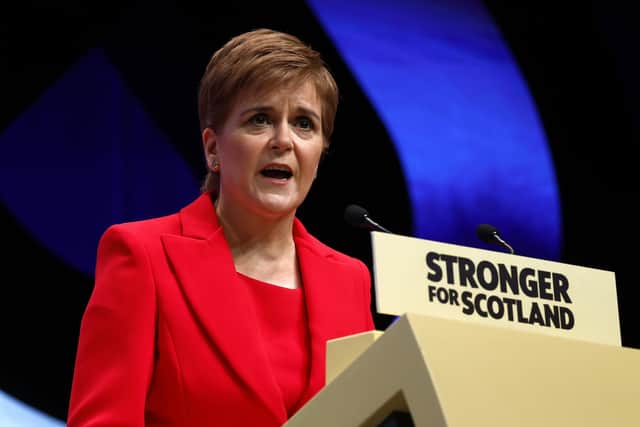Scottish independence: Former Conservative Foreign Secretary Malcolm Rifkind has an unexpected message for nationalists – Ian Swanson
and live on Freeview channel 276
First Minister Nicola Sturgeon, who has sought the court ruling, reasonably points out that voters elected a Scottish Parliament less than six months ago with a majority of pro-independence MSPs committed to holding a referendum. She has already set the date – October 19 next year.
But the request for Westminster to transfer temporary powers to Holyrood, as it did for the independence referendum in 2014, has been turned down and the UK Government doesn’t look like changing its mind.
Advertisement
Hide AdAdvertisement
Hide AdSo, if the Supreme Court rules against the Scottish Government, the question Ms Sturgeon asks is: What route can Scotland take if it wants independence?


In the absence of an answer from anyone else, she has come up with her own: the next general election will become a de facto referendum on independence – but it is a high risk strategy.
In order to claim victory, pro-independence parties would need to secure not just a majority of seats in Scotland, which they almost certainly would, but also a majority of votes –which they have only achieved once before, at the SNP’s high point in 2015 when it took 56 of Scotland’s 59 seats with 50 per cent of the vote.
But even if they did win a majority of votes, what would happen next? How do the SNP and its allies translate election triumph into independence?
Advertisement
Hide AdAdvertisement
Hide AdThey would claim a mandate to open negotiations, but would the UK Government even agree to talks? If ministers in London are prepared to ignore the result of the Scottish Parliament election, will they really pay any more heed to the verdict of Scottish voters in a Westminster election?
Former Foreign Secretary Sir Malcolm Rifkind, ex-MP for Edinburgh Pentlands, recently touched on the issue of UK governments and their response to Scottish wishes.
Answering questions after a recent lecture he delivered at Edinburgh University, he made the curious argument that Scots could have got devolution earlier if only they had been more passionate about it when the Tories were in government between 1979 and 1997.
Although he acknowledged majority support for devolution during this period, he said it was a "desire" rather than a "demand". If there had been mass protests every weekend, Margaret Thatcher or her successor John Major would have had to concede, he claimed.
Advertisement
Hide AdAdvertisement
Hide AdHe suggested current support for independence – shown at 52 per cent in the latest British Attitudes Survey, as Ms Sturgeon pointed out in her speech to the SNP conference yesterday – was probably similarly lacking in passion.
"We are told half the population wants independence,” he said. “Well it depends what you mean by 'wants'.”
It seems a strange message for anyone associated with government to send, not only to independence campaigners but also to voters – that wishes expressed at the ballot box may be ignored by those in power, but repeated large demonstrations might just get you what you want.
In the current context, it almost amounts to ‘forget the judges, take to the streets’.
Comment Guidelines
National World encourages reader discussion on our stories. User feedback, insights and back-and-forth exchanges add a rich layer of context to reporting. Please review our Community Guidelines before commenting.
